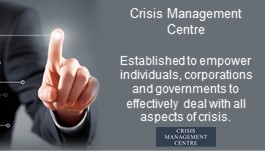Based on the press release issued by FICO, 5 Ways to Combat Fraud During the Holidays. Black Friday and the holiday season will bring more fraud attempts – here’s how to protect yourself.

- The pandemic is driving holiday shoppers online creating a more lucrative target for fraud and scams targeting consumers.
- FICO’s Liz Lasher has five top tips for consumers to avoid fraud over the 2020 holiday shopping period.
- Find out what banks are doing to protect consumers from fraud these holidays.
- Start a conversation with Liz on twitter @LizFightsFraud about fraud or our tips.
As we head into the holiday season, you’ve probably had enough stress in 2020. But wait––yet another wrench has been thrown in this challenging year! Fraud has spiked during the pandemic, with criminals upping their game as consumers swing into holiday shopping mode. Read on for five powerful fraud-fighting tips to help you break out of the 2020 doldrums and end the year with a little less stress!
More information: https://www.fico.com/blogs/holiday-fraud
Like COVID, Fraud Is Rampant
The fraud problem has gone viral – consumers have filed more than 130,000 reports of fraud to the FTC and have lost $182 million to these activities during the pandemic. UK Finance reports over £27 million was lost to fraud at online marketplaces and auction websites in the first half of 2020. Just as COVID has dramatically impacted our shopping habits, it’s affected our financial safety, too.
- Payment card fraud, identity theft, account takeover and digital payment fraud have all increased significantly since March 2020.
- COVID-related scams are rampant and rapidly evolving.
- When it comes to holiday shopping, criminals are primed to jump into the fray to perpetrate fraudulent transactions, hoping they’ll pass as legitimate; a recent survey led by Pitney Bowes found that 57% of consumers plan to shop online more this year. Meanwhile, 45% of consumers say they already do more than half of their current shopping online–nearly three times pre-pandemic.
With that in mind, there are actions you can take right now to protect yourself from fraud and identity theft.
It Pays to Protect Yourself
“When it comes to financial fraud, such as account takeover, banks are on your side,” said Liz Lasher, vice president of Fraud, Financial Crime and Cyber Risk Portfolio Marketing at FICO. “However, prevention is critical, particularly when it comes to identity theft, because the clean-up can be quite difficult and messy, and recovering stolen funds can be a tedious, months-long process.
“Credit card fraud is more quickly resolved, but you may still have to go through the hassle of having transactions declined and filing a fraud claim with your bank or card provider. At the other end of the spectrum, scams, or as the industry calls it ‘authorized push payment fraud’ can have traumatic, long-term effects. It occurs when you, the consumer, approve a transaction, and you are most often held liable for the payment. In this instance, banks will not always foot the bill for damages.
“To reduce your risk of being a victim of any of these crimes, here are my five top tips to protect yourself against fraud this holiday season.”
Tip #1: Revisit Your Password Habits
We’ve all pretty aware of the concept of strong passwords, mixing lowercase letters, capitals, numbers and symbols. But let me challenge you change your thinking, because it turns out that long passwords are even more important than strong passwords. The length and strength of a password, combined, is the strongest deterrent to a hacker cracking your password with brute-force computing power.
It’s also important is to use a unique password for each of your accounts, particularly important ones—not just bank and brokerage accounts, but PayPal, Gmail and Amazon, everything! I can’t overemphasize the effectiveness – and elegant simplicity – of browse-based password managers that suggest randomized long, strong passwords, and manage them for you.
Tip #2: Take Advantage of Authentication Features
I highly recommend using any additional authentication capabilities offered by apps and websites you visit frequently; they’re a second layer of protection to make sure you’re really you. The easiest type to use is a one-time passcode, which can be texted or emailed to you.
Face biometrics are increasingly popular, too, particularly for banking and financial apps. If an app has a face biometrics capability (like Face ID on the iPhone), use it. You may run across someone who thinks you shouldn’t use face authentication because then the government will have your picture and personal information. This was the subject of a recent meme, the punch line of which said, ‘Wait until [this guy] finds out about driver licenses.’ Very funny, but in all seriousness, face biometrics and voice biometric authentication are a growing part of a multi-prong approach to increasing the security around your accounts.
Tip #3: Use Trusted Payment Methods
New payment apps are cool, but be careful. Do your research, read the reviews, and check Google carefully to see if the app is a scam. If in doubt, use ApplePay, PayPal, or another payment app you know and trust.
If you’re sending cash from your online or mobile banking app, and you need to send money to a new recipient, do a test transaction with a small amount of money and ask that person to confirm they got it. I did this the other day when I was paying someone to inspect my house for termites. It was a $100 inspection, but I was worried I’d type in the wrong phone number and send $100 to the wrong person. We did a $1 test transaction together to make sure I got his information correct.
Tip #4: Be Skeptical
It’s the giving season—during a pandemic—which multiplies the opportunities for fraudsters to try to scam you. Although GoFundMe states that “the overwhelming majority of fundraisers on our platform are safe and legitimate,” scams do happen there and many other places. Unfortunately, not every scam is identified and prosecuted; unless you personally know the person or family benefiting from a contribution, or can verify that the recipient’s identity and need, think twice (hard) before you donate.
To protect yourself from charity and disaster fraud (such as relief funds that spring up after hurricanes and wildfires), make sure the donation website is legitimate. It’s very easy for criminals to create lookalike websites that siphon off credit card and personal information, which can then be quickly used to run up fraudulent transactions. The FBI has a very useful tip sheet to help you spot fake charity and disaster sites.
Tip #5: Monitor Your Credit Report
Everyone––and I mean everyone––needs to monitor their credit reports. Not just to stay informed about credit history, but also a proxy for early indication of fraud such as identity theft. If you have young children, or take care of your elderly members of your family, or don’t expect needing credit yourself anytime soon, you can also consider freezing your credit. This will also freeze all of the accounts associated with your identity.
At the very least, periodically reviewing credit reports will help you find out if anything strange or unexpected is happening. Nipping identity theft or credit misuse in the bud could help you avoid losing a few dollars or a large sum of money, as well as well as having to rebuild your credit health.
Want to see what banks are doing to keep you safe? Check out this blog post on Out of Sight: How Banks Protect Consumers from Credit Card Fraud.
Have questions or comments on my fraud-fighting tips for this holiday season? Tweet at me on Twitter @LizFightsFraud.

SOURCE FICO


